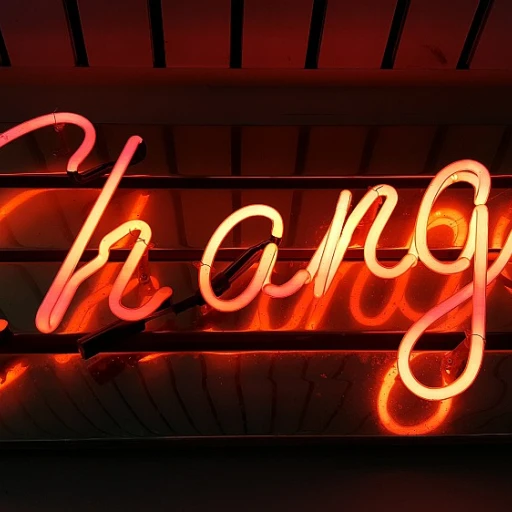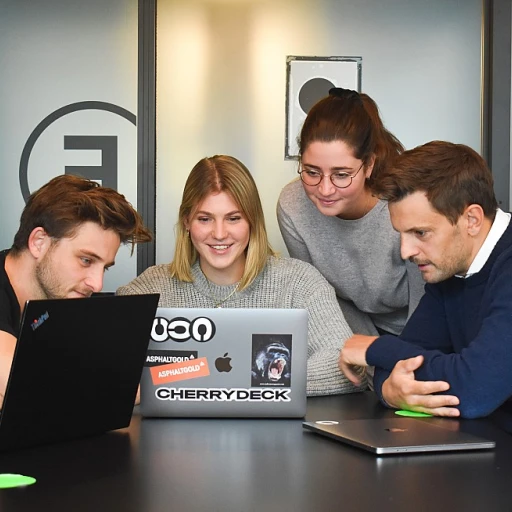
Understanding the Importance of Diversity in Hiring
The Significance of a Diverse Hiring Environment
In recent years, the business world has witnessed a growing emphasis on diversity and inclusion within the workplace. Businesses have come to realize that building an inclusive work environment is not just a matter of ethical responsibility but also a strategic advantage. A diverse team enhances decision-making by integrating varied perspectives, which can improve problem-solving capabilities and drive innovation.
The significance of diversity in hiring stems from its ability to expand the understanding of different markets and cultures, thereby reflecting the broader society in which a company operates. To cultivate such an environment, organizations must emphasize diversity and inclusion in their recruiting processes, which involves crafting interview questions that are mindful of diverse candidates.
An inclusive hiring approach ensures that underrepresented groups are given equal opportunities to contribute their unique perspectives and experiences. By asking questions that encourage open dialogue about diversity, employers can better assess a candidate’s readiness to integrate into a varied work environment.
Furthermore, understanding the importance of these principles lays the groundwork for creating a truly inclusive workplace. By prioritizing diversity, a company not only enriches its team culture but also strengthens its workplace environment. Companies that succeed in this realm often have robust diversity, equity, and inclusion initiatives in place to nurture their employees’ growth and satisfaction.
For more insights on how to foster an inclusive hiring journey, you can explore the comprehensive discussion on crafting an exceptional interview journey for candidates.
Key Elements of Effective Diversity Interview Questions
Crafting Questions for Ideal Outcomes
Understanding the nuances of diversity and inclusion is crucial when formulating effective interview questions. It's essential for these questions not only to address the potential for diverse perspectives but also to foster an environment that nurtures open dialogue. A well-prepared interviewer should be able to encourage answers that reflect an individual's unique background, experiences, and perspective, ensuring a richer team dynamic in the workplace. Incorporating questions that probe an interviewee's understanding and commitment to diversity inclusion is a significant step. These questions should aim to uncover how the candidate has engaged with diverse teams or addressed equity inclusion in past roles. A practical approach might involve asking for specific examples that demonstrate their personal contributions to encouraging a more inclusive workplace. Effective interview questions should also aim to identify how candidates have handled decision making while considering underrepresented groups. This understanding can reveal their capability to advance company-wide efforts towards an inclusive work environment. For instance, an interviewer might ask, “Can you provide an example of when you contributed to a team project by incorporating diverse ideas that led to successful results?” This prompts the candidate to reflect on their role in fostering diversity and leveraging diverse experiences to achieve team goals. Additionally, the questions should address how a candidate perceives and interacts with differences among team members. Queries like “How do you handle situations where unconscious bias might be present?” or “What strategies have you implemented to ensure diversity in your previous workplace?” can provide deeper insights into the candidate's previous inclusion initiatives and their awareness of biases. For those seeking a more structured approach to crafting these interview questions, "Essential Questions for Manual Testing Interviews" could be an invaluable resource. This guide aids in forming questions that not only evaluate technical skills but also align with diversity equity goals, further ensuring that interviewers are equipped to reflect an inclusive work environment effectively. By focusing on these key elements, interview questions are more likely to elicit responses that highlight a candidate's potential contribution to a company's diversity and inclusion efforts, ultimately aiding in the selection of team members who will thrive in and contribute to a holistic workplace culture.Common Mistakes to Avoid
Avoiding the Pitfalls in Diversity Interviews
Effectively crafting inclusive interview questions for a diverse pool of candidates requires understanding and eliminating common mistakes that can alienate or disadvantage candidates from underrepresented groups. Here are key areas to focus on to ensure diversity and equity in your hiring process:- Unconscious Bias: Human resources need to be aware of the unconscious biases that can seep into interview questions and the decision-making process. Addressing these biases is crucial in creating an inclusive workplace where open dialogue and acceptance are prioritized.
- Exclusionary Language: Interview questions should be framed to avoid verbiage that might inadvertently exclude diverse perspectives. For example, asking questions that assume a certain cultural knowledge can make candidates from diverse backgrounds feel uncomfortable.
- Overgeneralizing: It is essential not to stereotype candidates based on diversity categories. Every individual brings a unique set of experiences and perspectives. Tailor questions to the job role while respecting each candidate's individuality.
- Lack of Contextual Understanding: Without providing context, candidates might find it challenging to relate to hypothetical scenarios. Clearly address potential work environment dynamics to help candidates provide a thoughtful answer.
- Ignoring Feedback: Constantly evaluate the impact of diversity interview questions by collecting feedback from both the interviewee and team members. This can help refine the inclusion efforts and foster a more equitable inclusion workplace.
Examples of Thoughtful Diversity Interview Questions
Illustrative Examples of Effective Diversity Interview Queries
Crafting interview questions that reflect and support diversity and inclusion initiatives goes beyond mere curiosity about a candidate's background. It involves a keen understanding of how to frame queries that allow for an open dialogue and consider diverse perspectives. Here are some examples of how to approach interview questions to contribute to a more inclusive workplace and assess how a candidate can complement the company's environment:- Experience with Diversity and Inclusion Efforts: "Can you share an example of how you've contributed to diversity, equity, and inclusion efforts in your previous roles?" This question encourages candidates to demonstrate their understanding and involvement in promoting diversity within their work environment.
- Understanding of Diverse Perspectives: "Tell us about a time when you had to address a challenge involving a decision-making process that required considering different cultural or diverse perspectives." Such queries gauge the candidate's readiness to navigate and harmonize diverse viewpoints in the workplace.
- Adaptability in Work Environments: "Describe an experience where you had to adapt to a diverse team or work environment. How did you ensure inclusion for all team members?" This example helps to ascertain the candidate's adaptability and commitment to fostering an inclusive culture.
- Unconscious Bias Recognition: "How do you approach and mitigate unconscious bias in your professional interactions?" This question seeks to explore a candidate's self-awareness and proactive measures toward creating an equitable professional space.
Training Interviewers for Inclusive Practices
Equipping Interviewers to Foster an Inclusive Environment
Conducting interviews with a focus on diversity and inclusion requires more than just crafting a set of questions. Hiring teams must be adequately trained to address diverse candidates appropriately and encourage open dialogue. This is crucial to prevent unconscious bias and promote decision making that values diverse perspectives within the workplace. An effective training program for interviewers can encompass several key components:- Understanding Diversity and Inclusion: Comprehensive training sessions should help team members build an understanding of the broader context of diversity, equity, and inclusion efforts in the workplace. This includes acknowledging underrepresented groups and the unique challenges they may face.
- Effective Questioning Techniques: Instruction should cover how to phrase interview questions in a manner that is inclusive and elicits insightful responses from candidates. For example, questions should avoid language that may alienate or stereotype individuals based on their background.
- Active Listening Skills: Interviewers should be trained in active listening to genuinely understand and appreciate the diverse experiences of candidates. This skill helps in interpreting answers effectively and making informed hiring decisions.
- Recognizing and Mitigating Unconscious Bias: Interviewers must learn to identify their own biases and understand how these might affect the evaluation of candidates. Techniques and tools to minimize these biases should be a core part of any training program.
- Simulated Interviews and Feedback: Practical exercises, such as role-playing and simulated interviews, can provide interviewers with hands-on experience in implementing inclusive practices. Constructive feedback will help refine these skills further.
Evaluating the Impact of Diversity Interview Questions
Measuring the Effectiveness of Diversity Interview Strategies
Evaluating the impact of diversity interview questions is vital for fostering an inclusive workplace and ensuring diversity equity and inclusion goals are met. By implementing thoughtful diversity interview strategies, companies can enhance their decision-making processes and better address the needs of diverse work environments. Here are several ways to assess the effectiveness of these practices:- Analyze Candidate Feedback: Gathering feedback from candidates about their interview experiences helps identify areas for improvement. Positive responses may indicate that questions are fostering an inclusive environment, while critical feedback can highlight needed adjustments.
- Track Diversity Metrics: Monitoring the diversity of new hires over time can reveal whether inclusive interview questions lead to an increase in diverse and underrepresented groups within the company. This is a clear indicator of the questions' effectiveness.
- Evaluate Hiring Outcomes: Consider the alignment between candidates selected and the company’s diversity, equity, and inclusion objectives. Successful diverse hires can serve as examples of the interview process's effectiveness.
- Assess Interviewer Performance: Regularly reviewing how interviewers implement training and inclusive practices ensures consistency across the board. Including team members from various departments in this evaluation can provide a broader perspective on effectiveness.
- Foster Open Dialogue: Encourage an inclusive workplace by maintaining ongoing conversations around diversity interview initiatives. Regularly discussing challenges and successes with human resources and other decision-makers contributes to continuous improvement.













